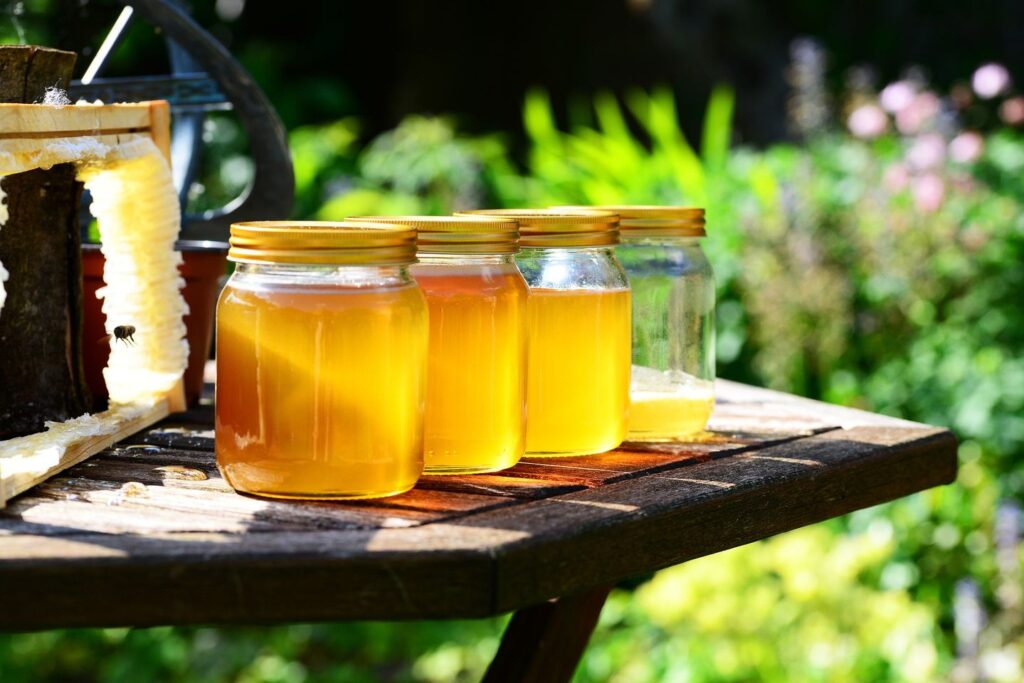NEWS has strongly supported sustainable honey harvest in Sundarban
28 - Mar - 2023
We applaud the Forest Department’s decision to strongly support Sundarban Honey stewards who harvest honey sustainably! The forest department announced that Sundarban Honey stewards who bring in honey with a moisture content below 23% will be given a raised value of Rs 250/kg.
Why is this great news for the bees, humans and the planet?
First, let us understand the difference between low and high moisture levels in honey which gives us a chance to appreciate the honey-making process of the bees. Forager bees first collect nectar, which interestingly is produced by flowers to encourage bees to help in the pollination process. After having collected nectar, the enzymes in the special honey-collecting stomach of the bee break down complex sugars into simple ones which will have lower chances of crystallizing. Forager bees pass on the nectar to Worker bees who dry the nectar down which is then stored for use in winter by the bees. Honey with higher moisture content is still nectar which worker bees are drying down to honey. Lower Moisture content means that the bees are storing it for future use indicating its ready for consumption.
Many people in the Sundarban depend on honey collection as a livelihood. Sundarban honey collectors are intrepid harvesters never knowing where exactly a honeycomb may be found as the forests of Sundarban are protected areas. For the purpose of honey harvesting, the forest department allows honey collectors with permits to collect honey only for designated months starting from April. Following the movements and the sounds of the bees, honey collectors find a honeycomb. However, the Sundarban is a landscape which changes every hour with the high tide and low tide creating an ever-changing environment. With tigers in the forest and crocodiles in the rivers, honey collectors have much to be careful of.
With the limited time at hand and this difficult terrain, honey collectors must work hard and fast. Many honey collectors may destroy the entire honeycomb in their quest for honey due to these circumstances. This is terrible for the bees, honey collectors and us. Bees lose their progress and their food storage which leads to their depleting numbers and colonies. Honey collectors lose out on future harvests. We, as consumers, are not buying honey which is at its best.
By offering a higher price for this honey, the forest department is encouraging honey collectors to be more conscientious in their approach. Sundarban Honey stewards will sustainably source honey by responsibly taking only what is needed and will be rewarded for this effort.
NEWS has strongly supported sustainable honey harvest in Sundarban by testing the moisture content in the supply chain of Badabon Harvest, a producer company, which has been offering higher market prices for such honey to support the same! We look forward to the sustainably sourced honey harvest that this year brings!
When our bees thrive, our planet thrives too!
Image by PollyDot from Pixabay
